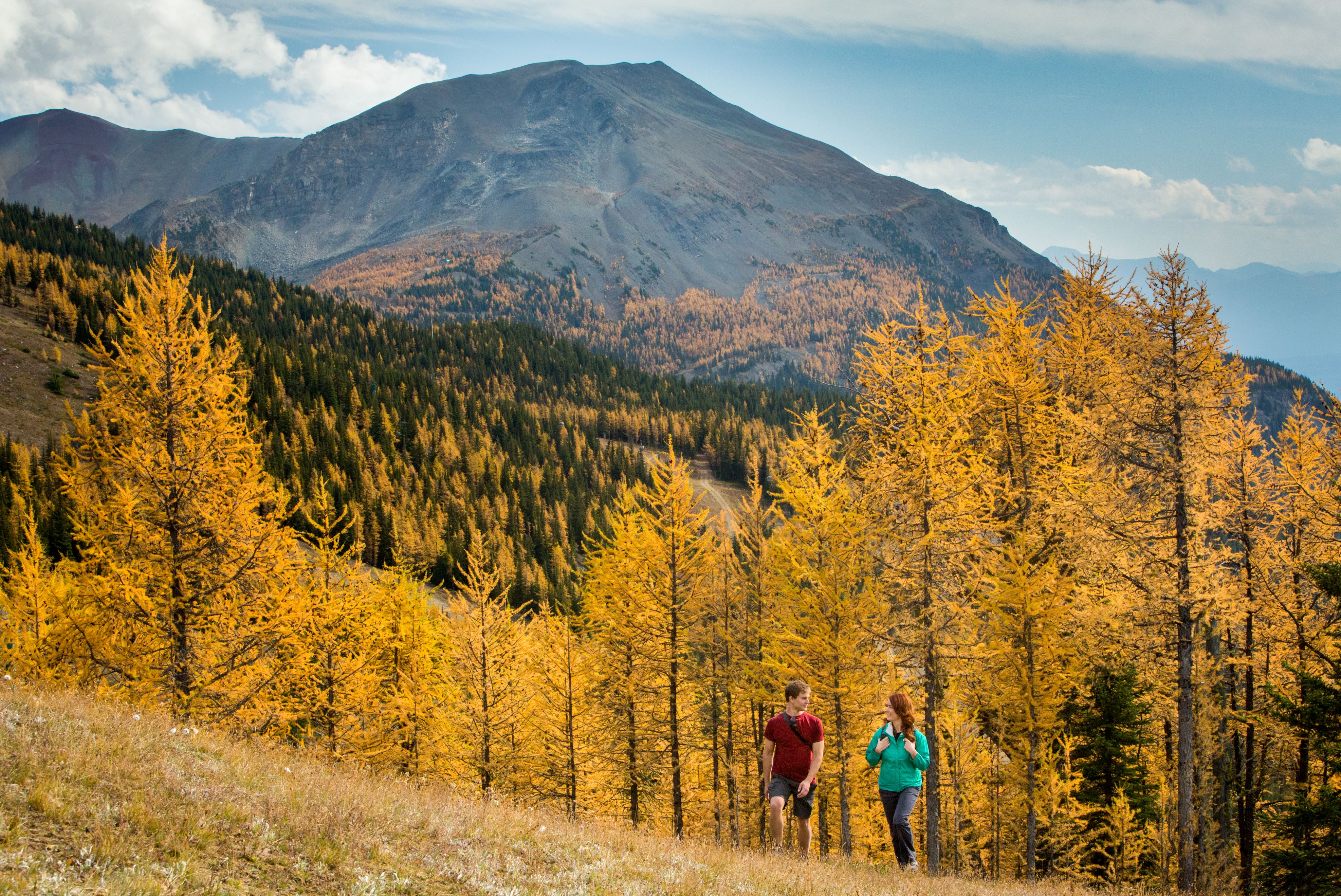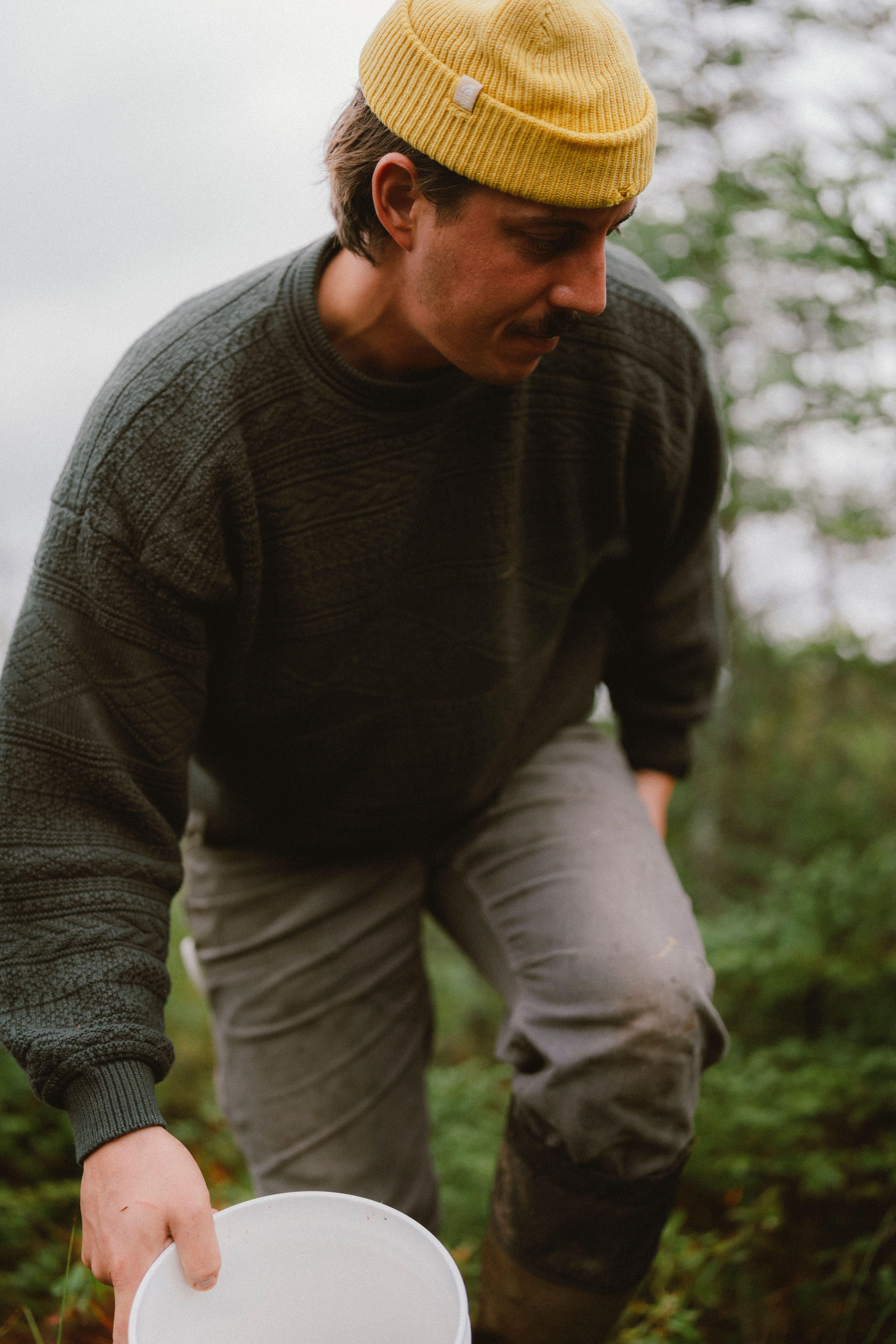The Wild Chef
Nick Chindamo’s Pursuit of Canada’s Untamed Flavours
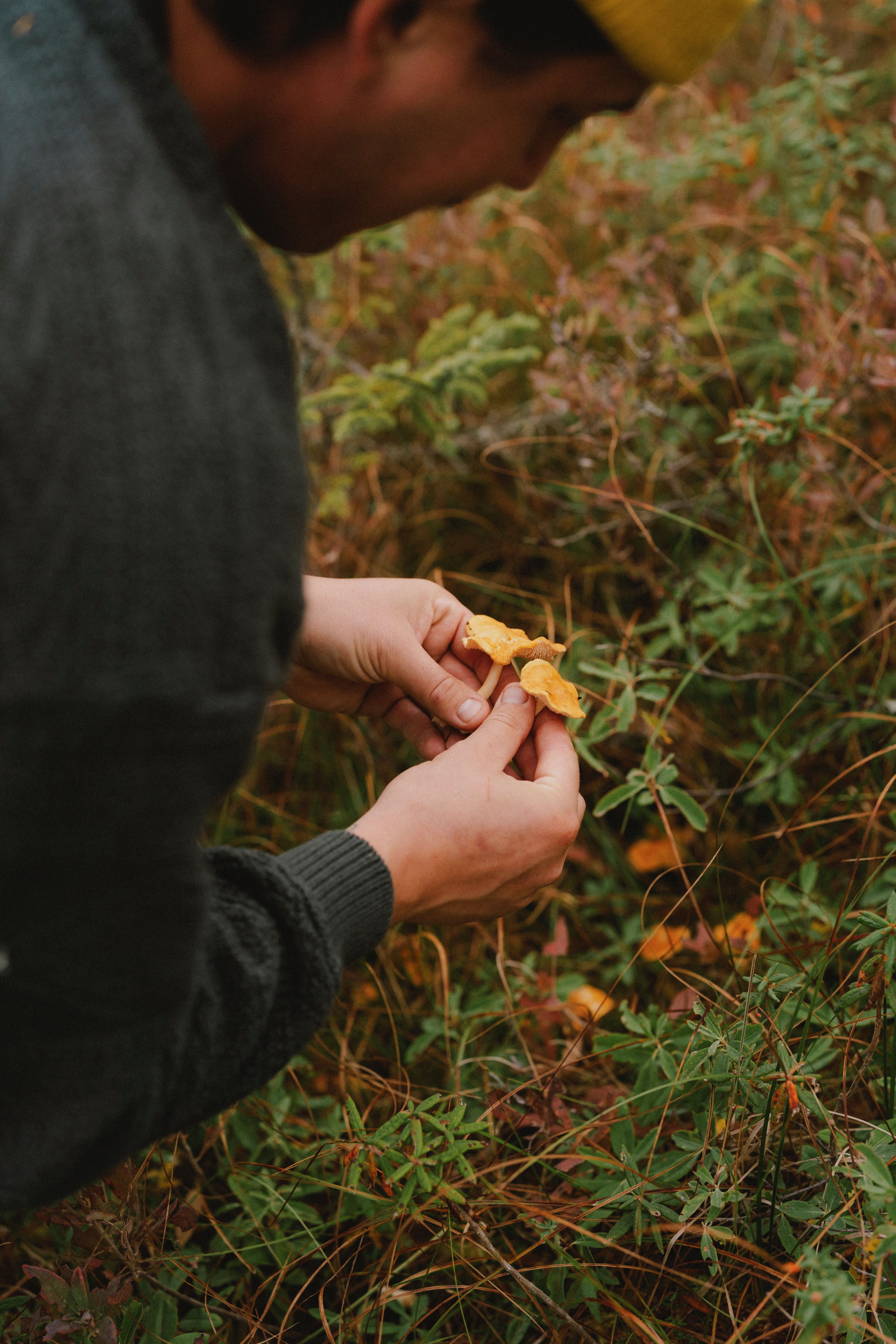
Prince Edward Island’s food scene is often flattened into a postcard: lobster rolls on picnic tables, tourist-packed seafood shacks, and the soft glow of summer sunsets.
But for Chef Nick Chindamo, PEI’s true culinary identity lives far beyond the clichés. It is rooted in soil, shaped by tides, and hidden in the overlooked corners of its wild landscapes.
Chef Nick has cooked in restaurants across the country, but today he operates outside the bounds of a kitchen. He’s a forager, an educator, and a culinary storyteller whose work redefines what it means to “cook local.” His tools are just as likely to be mud-splattered boots and a harvest knife as they are a pan or chef’s knife.
“I’m more ingrained in the industry now than I ever was in restaurants,” he says. “My time is spent learning ingredients from the ground up, literally. I watch things grow. I study their flavour as it changes. I take chefs out into the field and help them reconnect with their food.”
That connection is Nick's north star. He speaks with the clarity of someone who’s found his purpose and with the urgency of someone who wants to help others do the same.
“Every cook needs a driving force,” he says. “I thought I had mine in restaurants. But when I stepped away and dove into this work full-force, that’s when everything started to click.”
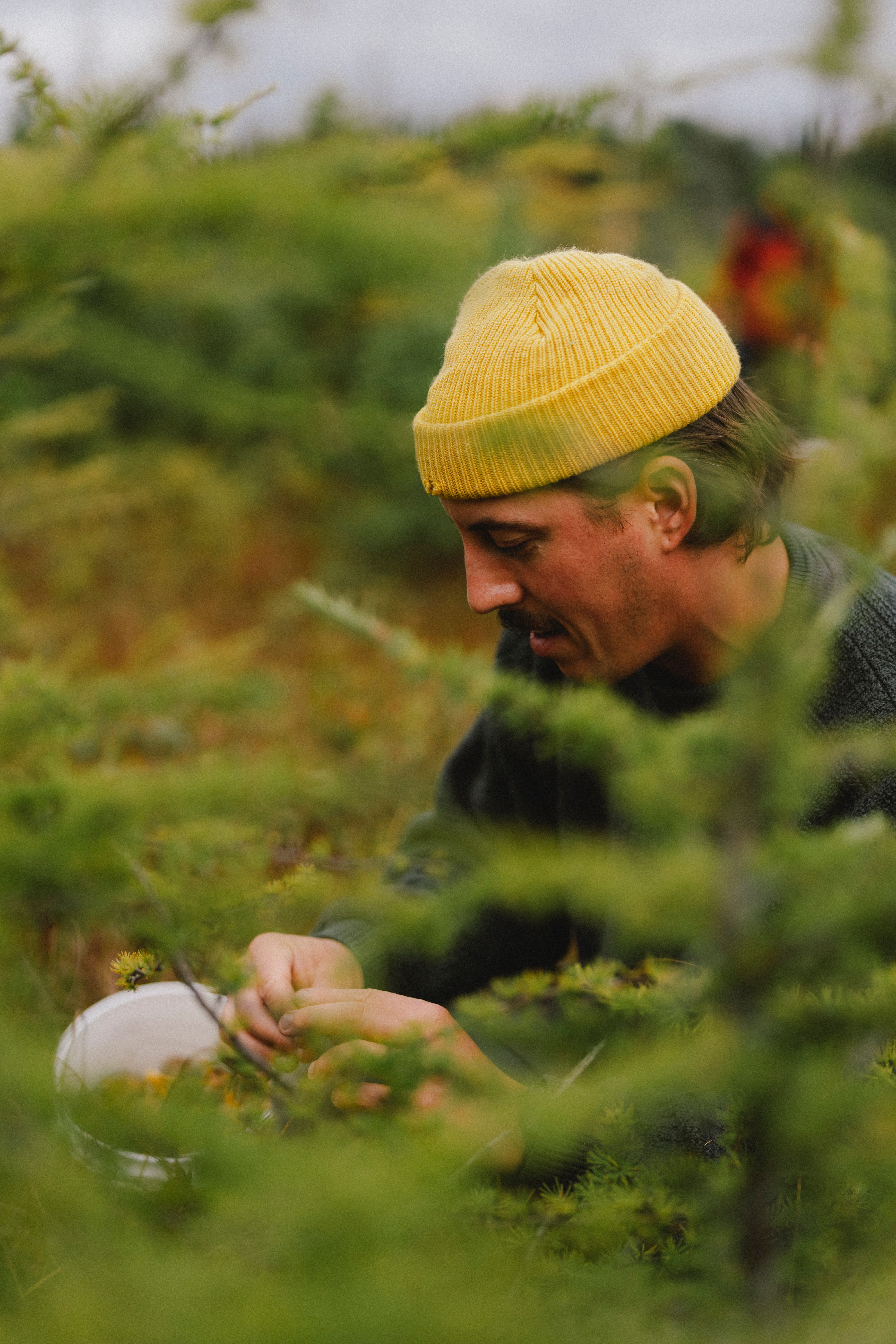
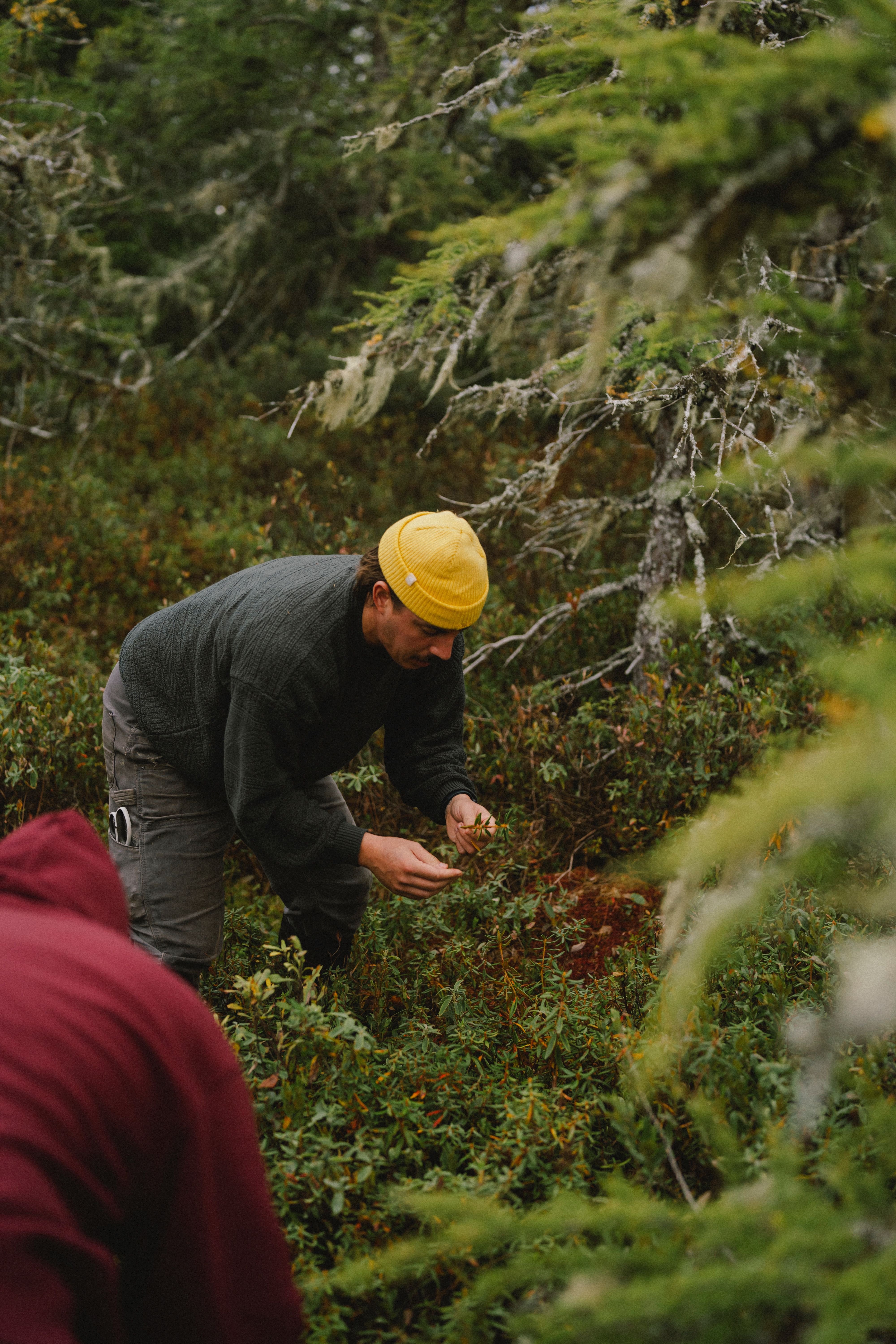
Nick calls himself a wild food enthusiast, but that barely scratches the surface.
For him, foraging is a way of thinking, a discipline that combines ecology, taste, and storytelling. The core skill, he says, is landscape literacy.
“It’s the ability to read the land and understand your place in it. How you move through an ecosystem matters. The attention you pay to subtle changes shifts how you operate, not just as a forager, but as a person,” Nick says.
This attentiveness becomes a lens through which he explores Canadian cuisine, which he believes is less about recipes and more about place.
“Canadian cuisine is about showcasing where you are,” he explains. “If you don’t understand the land, you can’t represent it honestly. But if you can read it, you can tell its story.”
Much of Nick's current work is rooted in the landscapes along the West River, a tidal system just outside Charlottetown. Once a busy route for shellfish harvesting, many parts of it are now forgotten. It is quiet, thriving, and unmarked by human traffic.
“I visit places along the river that feel like no one’s been there in hundreds of years,” he says. “They’re a reminder that I’m on the right path, rediscovering wild foods that have been overlooked or misunderstood for generations.”
The river, like Chindamo himself, is in a slow process of transformation. Its banks shift. Its biodiversity changes. But at its core, it still offers abundance for those willing to look.
Nick is quick to point out how PEI’s food identity has swung from one extreme to another.
“For years, Islanders were told that locals wouldn’t eat anything beyond meat and potatoes,” he says. “Now, the food scene is skewed in the opposite direction, built entirely for tourists. Lobster rolls. Crab nachos. Fish and chips.”
In chasing the market, Nick believes the island has lost some of its culinary soul. His answer isn’t nostalgia, it’s rootedness.
“We need to settle back into this place,” he says. “Serve fresh, simple food grown or caught right here. Celebrate the people who make it possible: the farmers, the fishers, the foragers. Expand the idea of what PEI food is.”
Nick's work blends cooking, conservation, and education. When he takes young chefs into the woods or shares a meal with them, his goal is to push them deeper into their own questions.
“There are plenty of chefs in the world,” he says, “but not enough who cook with real purpose. I want them to think about why they’re doing this, not just how.”
He frames it in personal terms: “I’ve always known I’m not a cook who forages. I’m a forager who cooks. That distinction has always given me clarity. And I try to help others find their own version of that clarity.”
“Canadian cuisine is about showcasing where you are. If you don’t understand the land, you can’t represent it honestly. But if you can read it, you can tell its story.”
Chef Nick Chindamo
When asked to share an ingredient that’s changed how he thinks about food, Nick doesn’t hesitate.
“Cow Parsley — Anthriscus sylvestris. In spring, if you harvest the central stem before it flowers, it tastes just like a carrot. And that’s not an accident, they’re in the same plant family.”
To Nick, that realization cracked open a whole new way of cooking.
“Flavour isn’t about individual ingredients. It’s about families. If you’re missing something, look at the plant family it belongs to. You might find the flavour you're after faster than you think."
It’s a perfect example of how ecological knowledge and culinary instinct work together in his world. In a country still trying to define its culinary identity, Nick's answer is both simple and sweeping.
“Canadian cuisine has always been here. It’s food native to this land, shaped by local techniques, shared communally. That’s been true for thousands of years.”
He doesn’t dismiss the modern multicultural makeup of the country, far from it. He sees Canada’s food scene as a mosaic where diverse traditions overlap and enrich one another.
But he insists that the future must be rooted in the past.
“PEI is a mix of cultures, and that’s beautiful. But Canadian cuisine, real Canadian cuisine, must be grounded in place. In the foodways of this land.”
Nick's not behind a pass anymore, but he’s still cooking. These days, his work starts in the field. No noise of the blender, no tweezers for garnish, just food with roots and history behind it.
Imrun Texeira
Chef Imrun Texeira is an acclaimed culinary talent with over 15 years of experience, having worked in top restaurants like the 3-Michelin-starred Noma in Copenhagen. In 2023, he was honoured with the Leader Award of Excellence from Restaurants Canada and the Alumni of Distinction Award from Algonquin College. Recognized as one of Canada’s Top
30-Under-30 hospitality leaders, Imrun owns Wanderlust, a premier private dining experience in Toronto, where he explores modern Canadian cuisine. He also advocates for mental health in hospitality as the Chief Ambassador for The Burnt Chef Project and educates children about Hospitality & Tourism Pathways.
Step into Canada's Golden Hour
